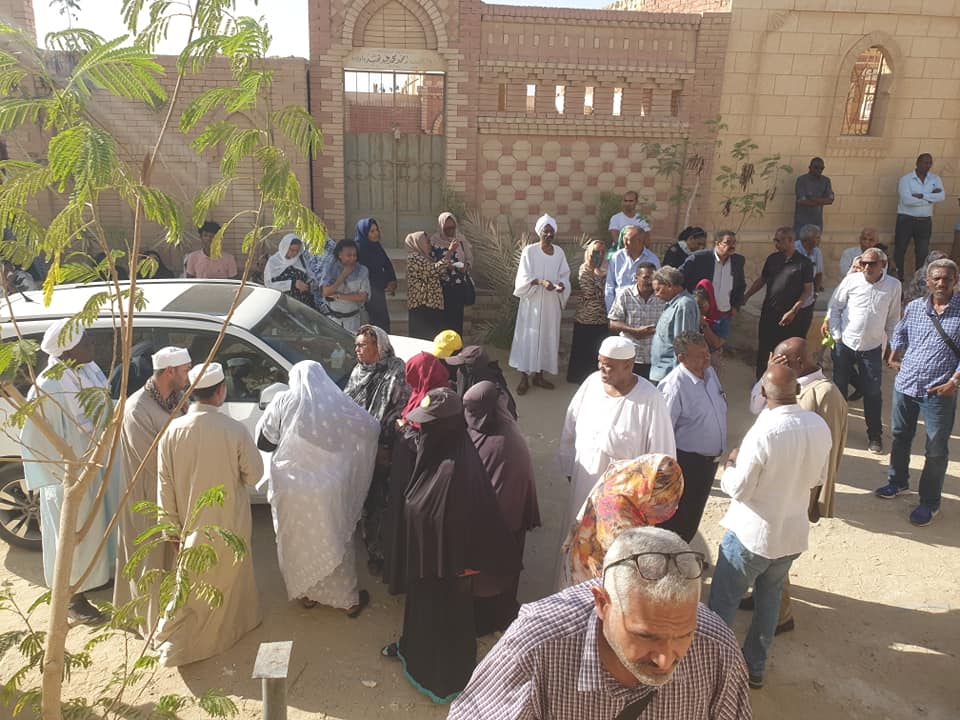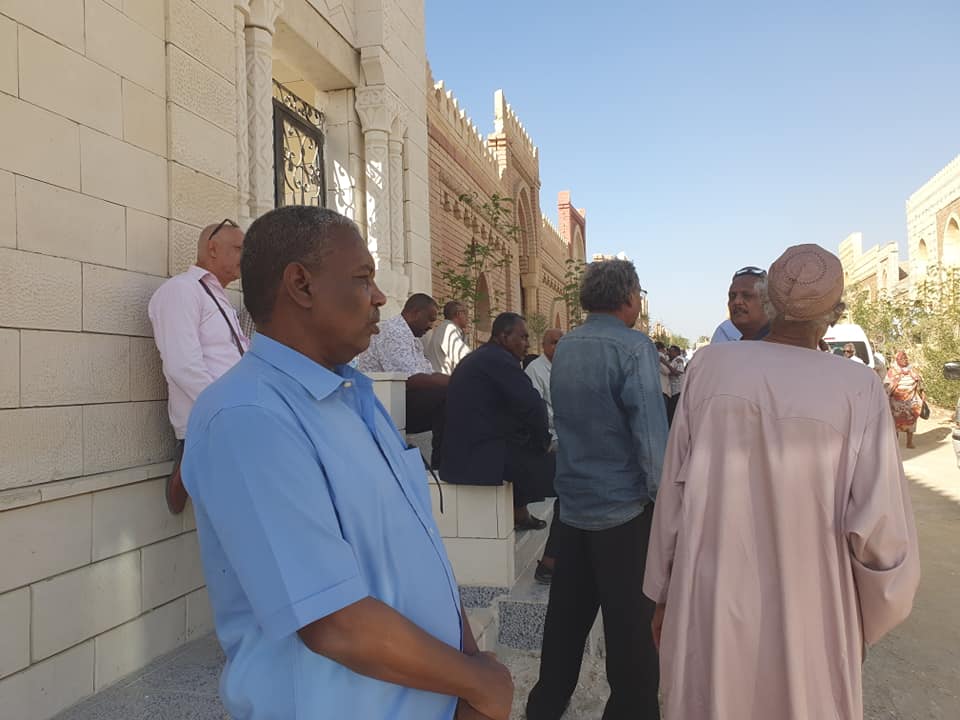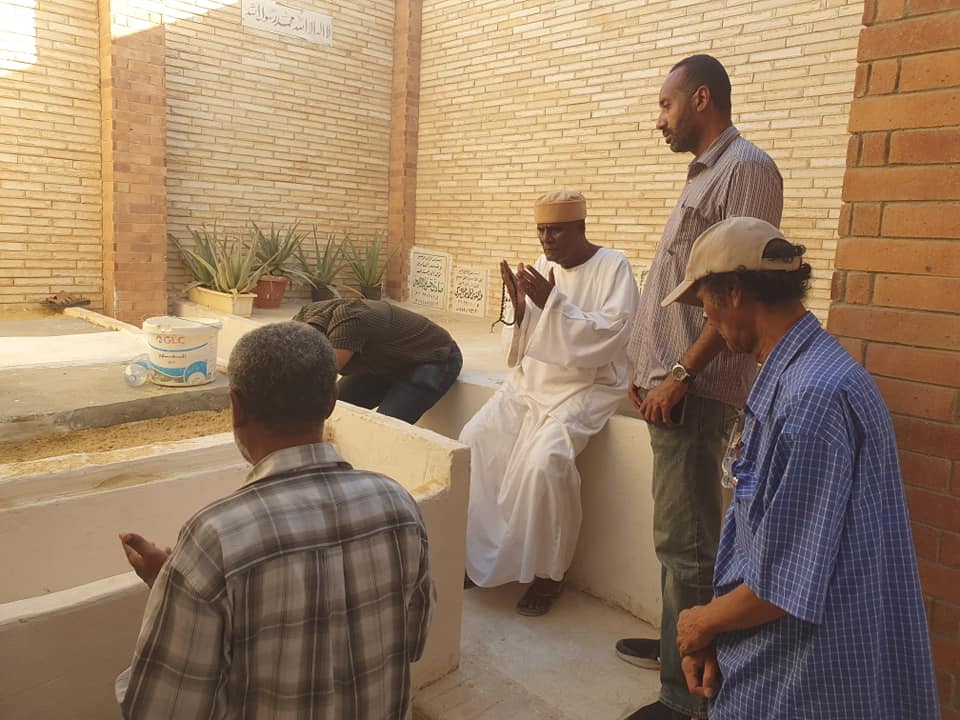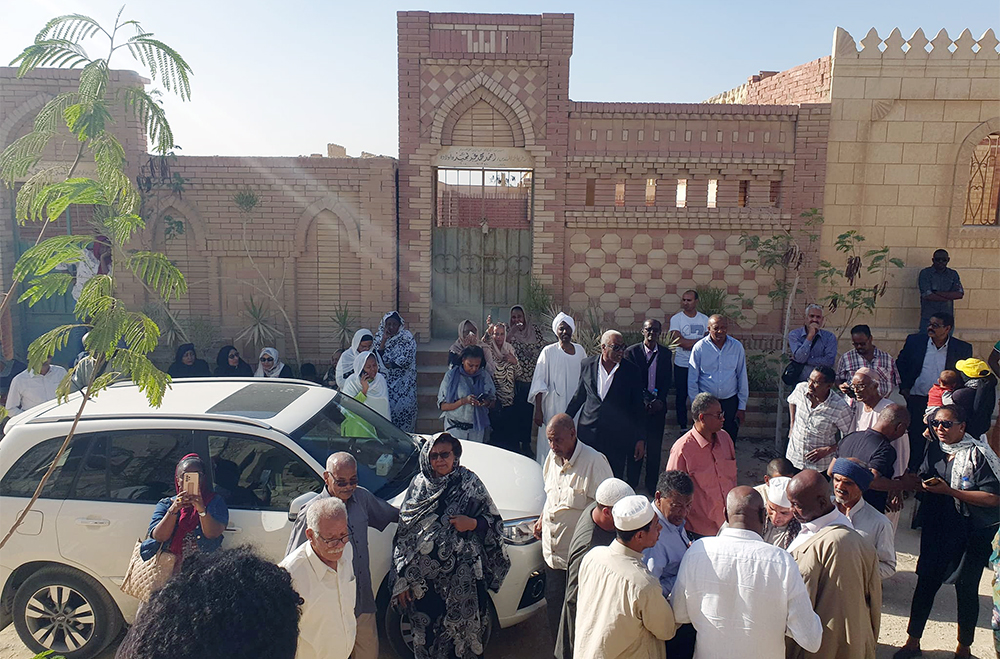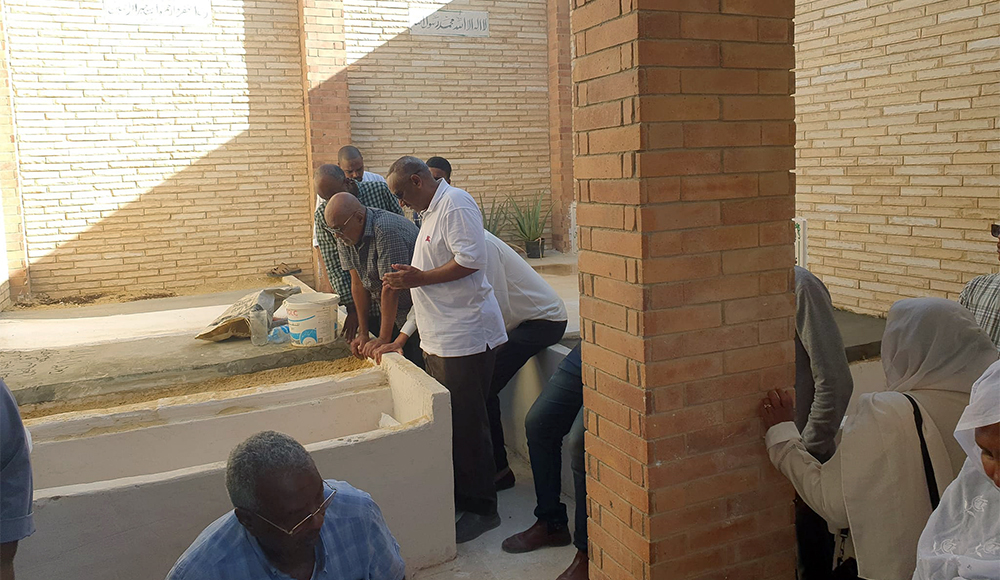
Kamal Al-Jazouli: Death is the Last Letter in the ``Diary`` of a Fulfilling Life
Al-Zain Osman
In the Egyptian capital, Kamal Al-Jazouli, the Sudanese man described as "politician, lawyer, poet, journalist, intellectual, communist," closed his eyes for the last time. Al-Jazouli passed away, perhaps to confirm the hypothesis "that after the end of this war, Sudanese will discover that they have lost many." Al-Jazoulis death seems monumental because he was one of the few concerned with issues of transitional justice and was a candidate for the presidency of the Transitional Justice Commission in Sudans transitional institutions after the revolution and before the coup.
His peers describe him by saying, "Kamal Al-Jazouli is a skilled lawyer, an adept and active politician, with all the meanings that word carries. He is a poet who masters the arrangement of letters, and a writer who is second to none." Whichever way you shake Kamals tree, you get ripe fruit. He had multiple facets of creativity, as his biography indicates that it originated in the city of Omdurman. In one of his interviews, Al-Jazouli, who described himself as lucky to have been born in an alley named "Singers Alley," spent his early life in the area confined between the post office and the house of "Abdullah Bak Khaleel," the prime minister in the first government after independence, and the house of "Al-Azhari," the leader who raised the flag of Sudans independence from colonization, reaching to Maki and the Graduate Club and the post office. He spent his early childhood in this area.
Al-Jazouli received his early education in Omdurman before joining the Faculty of Law at Cairo Universitys Khartoum branch. However, he left his studies there to complete them in the Soviet Union, benefiting from a scholarship provided by the Sudanese Communist Party, which he had joined at that time. According to Al-Jazouli, his joining the Communist Party was preceded by other experiences. He first joined the Muslim Brotherhood, where he was recruited by his uncle, the leader of the group in Sudan, Sadiq Abdullah Abdel Majid, but left it after a debate with a girl about issues of mixing and hijab, which he said defeated him in the discussion. He never returned to the group before supporting the late leader of the National Ummah Party, Al-Sadiq Al-Mahdi, in his conflict with his uncle over the party leadership. However, when Al-Sadiq Al-Mahdi returned to his uncle without giving them an answer to the questions, why the showdown? And why the return? He left the Ummah Party and then joined the Communist Party led by Abdel Khaliq Mahjoub. He joined with a background of being a creative person since the party was interested in creative individuals.
In the Communist Party, Al-Jazouli held a position in the Central Committee, one of the highest bodies in the party, but he also paid the price for that by being arrested during the era of the late President Jafar Nimeiry and later during the era of the ousted President Omar Al-Bashir, whose regime arrested Kamal Al-Jazouli in the early days of the December Revolution.
The story of the author of the most famous "Diary" in Sudanese journalism began in high school, where he edited a cultural page titled "Turquoise Saplings" before joining Al-Akhbar newspaper in college. Afterwards, he worked as a correspondent for the Africa News Agency and then worked for Al-Midan newspaper, which speaks on behalf of the Communist Party, before writing his diary in several Sudanese newspapers.
After Kamal Al-Jazouli wrote "Departure" as the last phrase in the diary of a life he spent serving Sudan and its people, he once said, "My testimony about the people of western Sudan is wounded, and I will dedicate the rest of my life to achieving peace in that beloved region and in every part of Sudan." That was when he returned from a death journey after undergoing a successful open-heart surgery.
Kamal, who will not find a grave to contain him in Omdurman due to the ongoing war, died for some to mourn him with the phrase "In the dark night, the full moon is missed." In the pitch-black nights of war, we miss the light at the end of the tunnel, and what does the country need more than transitional justice engineered by the lawyer Kamal Al-Jazouli? Kamal died, and Amal Al-Zain, a member of the Central Committee of the Communist Party, mourned him by saying, "No, no, he is gone. There are still long conversations that have not yet begun," before adding, "Someone like you does not leave. He is part of this solid land. Part of its sweet stories, and its poems, songs, and writings. You are part of what we stand upon as a nation."


